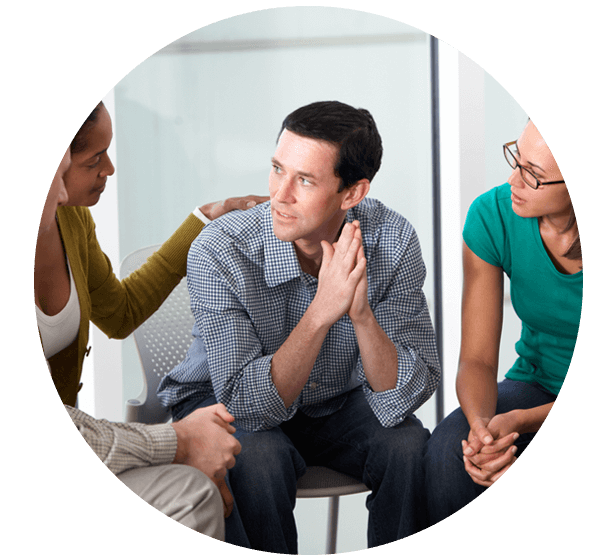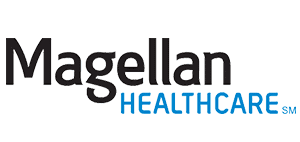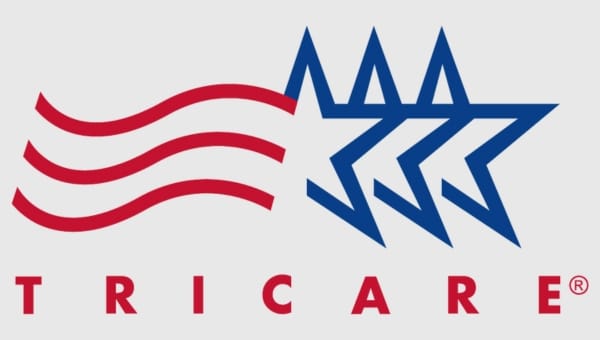According to statistics from the National Center for Drug Abuse, half of Americans over the age of 12 have tried an illegal drug. More than 140,000 Americans die from the effects of alcohol in an average year. With shocking statistics like that, it’s no wonder why so many are looking for therapies for addiction that work.
Vogue Recovery Center offers a full continuum of addiction treatment programs. The science of substance abuse treatment has advanced considerably in the past few decades. That means you have more options for recovery than ever before. Treatment plans feature evidence-based therapies integrated with holistic and alternative practices. This makes for a more comprehensive healing process.
The recovery process can be a long and winding road, but when you have clinical professionals on your side, sobriety is closer than you think. Vogue Recovery Center is here to help you achieve your goal of sobriety. We employ a staff of experienced and certified therapists. They oversee the recovery process for all. Recovery is always easier when you work with professional addiction treatment counselors.
Why Is Therapy for Substance Abuse Important?
Addiction therapists are licensed professionals with specialized knowledge and experience treating substance abuse. They understand the complexities of addiction and how it impacts you and your family. Addiction is often accompanied by other mental health issues, such as anxiety or depression. Professional therapists can integrate substance use treatment with mental health treatment for a comprehensive approach to recovery.
Addiction is often rooted in underlying emotional, psychological, or social issues. A professional therapist can help identify these underlying factors and work with you to address them. Without addressing the root causes, achieving long-term recovery becomes more difficult.

Addiction affects not only you but also your loved ones. Family therapy can help repair and improve relationships, improve communication, and support you and the ones you love during recovery.
Dual Diagnosis Treatment For Co-Occurring Disorders
Dual diagnosis refers to the presence of two or more mental health conditions occurring at the same time. It’s also known as co-occurring disorders and often refers to a substance use disorder (such as alcohol or drug addiction) and a mental health disorder. Each condition can influence the other and make it worse. For example, a person with depression may turn to alcohol to cope with their challenging emotions, leading to an alcohol use disorder. Excessive alcohol consumption may contribute to your depression symptoms getting worse.
Evidence-Based Addiction Therapy
Vogue Recovery Center uses different psychotherapies and techniques in the addiction recovery process. Our goal is to take advantage of the latest and most effective treatments to aid you on your journey to sobriety. Each treatment is overseen by a skilled and experienced therapist. We understand how best to treat addiction and underlying mental illness.
Some of the evidence-based addiction treatments at Vogue Recovery Center include:
Individual Therapy
Individual therapy is a crucial component of addiction treatment. You’ll get one-on-one support and guidance from a licensed therapist as you address the underlying issues contributing to your addiction. The goal is to develop coping strategies to achieve and maintain recovery. It also provides a safe space to process any emotions that come up in group therapy or discuss issues you’re not ready to share in group. Our counselors are well-versed in a number of therapeutic approaches, so you get the type of treatment that is effective and keeps you engaged.
Offered at: Arizona, California, and Nevada
Group Therapy
Group therapy is an essential and widely used form of treatment for addiction. It involves a small group coming together for sessions facilitated by a trained therapist or addiction counselors. Group therapy provides a safe space to process difficulties, build interpersonal skills, and learn healthy coping skills among peers in recovery. You’ll cover topics related to addiction and alcohol and drug misuse.
Group therapy can be conducted in various settings, such as inpatient or outpatient treatment programs, community centers, or support group meetings.
Offered at: Arizona, California, and Nevada
Family Therapy
Addiction doesn’t just affect you but your family and loved ones as well. Relationships and interpersonal patterns can also contribute to your substance abuse. Vogue Recovery Center offers several resources for your loved ones to heal from addiction’s wounds as well. Family counseling involves the participation of family members in the treatment process to improve communication, resolve conflicts, and strengthen the support system.
Depending on our location, family support may include family groups, family therapy, or family events. The goal is for all family members to learn how to communicate better and support each other in helpful ways.
Offered at: Arizona, California, and Nevada
Acceptance and Commitment Therapy (ACT)
ACT aims to help you develop psychological flexibility by accepting challenging emotions and thoughts while committing to value-driven actions. It encourages you to stay centered in the present. Your therapist will teach you mindfulness tools that help you accept your thoughts and experiences without labeling them as good or bad. When you train your brain to notice and accept thoughts and feelings, the urge to numb them out with alcohol or drugs may not be as intense. Acceptance and commitment therapy also helps you set goals and pinpoint concrete ways you can make positive changes in your life.
Offered at: Arizona, California, and Nevada
Cognitive Behavioral Therapy (CBT)
CBT is an evidence-based therapeutic approach for addiction. A therapist helps you identify unhealthy and inaccurate ways of thinking, the negative thought patterns and behaviors associated with substance abuse. You’ll learn to replace those thoughts with healthier, more accurate ones. Through this process, you will see how thoughts, emotions, and behaviors are interlinked and acquire the knowledge and tools to make positive changes in your life.
Offered at: Arizona, California, and Nevada
Dialectical Behavior Therapy (DBT)
DBT combines cognitive behavioral (CBT) techniques with mindfulness practices to help you regulate your emotions and manage stress. This can include paying attention to your physical and sensory experience as distressing emotions and thoughts arise. DBT is known to be particularly effective for people who struggle with:
- Thoughts of suicide
- Eating disorders
- Addiction
- Personality disorders like borderline personality disorder
Offered at: Arizona, California, and Nevada
Eye Movement Desensitization and Reprocessing (EMDR)
Relapse prevention skills help you learn to cope with feelings and experiences that make you want to drink or use drugs because the same triggers will be there when you return to everyday life. Some relapse prevention skills you’ll explore may include:
- Physiological fear symptoms
- Anxiety
- Flashbacks
- Overwhelming thoughts
- Panic attacks
Offered at: Arizona and Nevada
Cognitive Processing Therapy (CPT)
Cognitive processing therapy (CPT) is a form of cognitive behavioral therapy (CBT) designed to treat post-traumatic stress disorder (PTSD). It is not a specific treatment for addiction but may be used as a complementary approach in certain cases where trauma is a contributing factor to substance use.
Your therapist will help you recognize how past trauma impacts your present-day life. You’ll work to reframe the way you process traumatic events and learn specific skills to do so. CPT can be used in group therapy or one-on-one counseling.
Offered at: Nevada and Arizona
Motivational Interviewing (MI)
Motivational interviewing (MI) aims to enhance your motivation for change and promote commitment to treatment. It helps you explore and resolve ambivalence about quitting substance use and moving toward a healthier lifestyle.
Your therapist serves as a guide and collaborator, helping you find your own answers and goals for the future. You’ll gain a sense of independence, self-affirmation, and confidence.
Offered at: Arizona, California, and Nevada
Holistic and Alternative Addiction Therapies
Holistic therapies for addiction take a comprehensive approach to healing by going beyond your physical health to address your mind, body, and spirit. Many holistic therapies can reduce stress and anxiety, which are common triggers for substance use. By promoting relaxation, these therapies can help you manage your emotions and cravings. Holistic therapies often teach healthy coping strategies to deal with challenges and triggers without resorting to substance use.
These therapies focus on promoting well-being and may complement traditional addiction treatments. Holistic therapies are often parts of a larger addiction treatment plan, not standalone treatments.
Vogue Recovery Center offers the following holistic programming:
Art Therapy
Art therapy helps you express thoughts and emotions you find difficult to verbalize. Creating pieces with clay, paint, collages, and other materials can be a very healing experience that helps you connect the physical and mental parts of yourself and heal in alternative ways.
Offered at: California, Arizona, and Nevada
Music Therapy
Many people find music to be a healing part of recovery. Music therapy can help you process emotions and gain healthy coping skills. It can involve several approaches, including:
- Writing or listening to music
- Lyric work
- Recognizing moods tied to music
- Making playlists
- Easing emotional or physical stress
Offered at: California, Arizona, and Nevada
Yoga
Yoga is a moving mindfulness practice that helps you mend the mind-body connection. Poses and gentle stretches can help you reconnect with your body. Many people find yoga to be a valuable part of their recoveries and a helpful relapse-prevention practice when they’re feeling triggered.
Offered at: California, Arizona, and Nevada
Chiropractic Services
Chiropractic services can be a healthy alternative to addictive pain medication. If you’re struggling with opioid addiction, chiropractic can help ease discomfort as you learn healthier ways to manage pain. It can also be useful if your substance abuse has been masking physical pain that arises after detoxing.
Offered at: Nevada
Mindfulness Exercises
Mindfulness means practicing ways to stay present in the here. It can be a valuable tool to avoid relapse. Part of addiction recovery is taking sobriety one day at a time, or even one minute at a time. We teach you mindfulness techniques that keep you in the present, like:
- Breathwork
- Meditation
- Sensory awareness
Offered at: California, Arizona, and Nevada
RecoveryFit
Our unique RecoveryFit program gives you the chance to work with a personal trainer. This provides an individualized approach to fitness and helps you learn how exercise supports recovery. RecoveryFit emphasizes a physical experience of 12 spiritual principles. You’ll learn how these principles support recovery through activity, connection, and movement.
Offered at: California
Expressive Arts Therapies
Expressive arts therapies are a powerful form of treatment that combines traditional therapy techniques with creative expression through different art forms.
Expressive arts therapies include:
- Music
- Dance/movement
- Visual arts
Through the use of expressive arts, clients are able to tap into their subconscious and express emotions that may have been difficult to articulate through words alone. This can provide a sense of release and catharsis, allowing them to process and understand their experiences on a deeper level. For this reason, an expressive approach can be particularly beneficial for individuals struggling with addiction, mental health disorders, or trauma.
Offered at: Arizona, California, and Nevada
Experiential Therapies
Experiential therapies are an important aspect of addiction recovery at Vogue Recovery Center. These therapies focus on the mind-body connection and incorporate hands-on activities to promote healing and self-discovery.
Experiential therapies include activities like:
- Psychodrama
- Adventure therapy
- Play therapy
They can complement cognitive-based therapies by helping you process emotions in both your body and mind. Our rehab programs draw on several experiential approaches that vary by location and level of care.
Offered at: Arizona, California, and Nevada
Looking for Addiction Therapy Services Near You?
Our admissions team is available around the clock to help you or a loved one get the help you need.
Therapeutic Support Services
While in recovery, there are several other therapeutic services that can offer guidance and support during treatment. These integrative services can aid in the healing process and provide additional tools for maintaining sobriety. At Vogue Recovery Center, we offer a variety of services to complement our evidence-based and alternative therapies.
Medication-Assisted Treatment (MAT)
Heroin, prescription opioid addictions, and alcohol addiction can be particularly hard to overcome due to cravings and withdrawal symptoms. Other medications can ease withdrawal symptoms or help wean you off your drug of abuse. They are also used to help manage symptoms of mental health disorders in the case of co-occurring disorders. Your therapist will assist a clinician with MAT to ensure your recovery is safe and effective. Medication-assisted treatment is often combined with other psychotherapies and behavioral therapies.
Treatment medications commonly used in MAT include:
- Naltrexone
- Acamprosate
- Suboxone
- Disulfiram
Offered at: Arizona and California
12-Step Groups
Having supportive peers can be crucial to recovery. Twelve-step programs like Alcoholics Anonymous (AA) and Narcotics Anonymous (NA) instill accountability and a sense of community in sobriety. A sponsor can also be very helpful in early recovery. We’ll introduce you to 12-step groups or alternatives to 12-step groups if you don’t relate to the idea of a higher power.
Offered at: Arizona, California, and Nevada
Case Management
You’ll have a dedicated case manager who will make sure you have all the different supports you need during and after addiction treatment. Your case manager may connect you with dentists, nutritionists, physicians, and other providers. They’ll also help schedule therapy appointments and other aftercare needs before you leave.
Offered at: Arizona, California, Nevada
Medication Management
We provide medication management of medications like antidepressants, anti-anxiety medicines, or antipsychotic medications that help ease mental illness symptoms. Untreated or under-treated mental illness can contribute to substance abuse. We provide mental health treatment when substance abuse is the primary diagnosis. This can greatly help the behavioral work you’re doing. Our medical team will prescribe or manage treatment medications as clinically appropriate.
Offered at: Arizona and California
Relapse Prevention Skills
Relapse prevention skills help you learn to cope with feelings and experiences that make you want to drink or use drugs because the same triggers will be there when you return to everyday life. Some relapse prevention skills you’ll explore may include:
- Fitness
- Support groups
- Mindfulness
- Yoga
- Journaling
- Hobbies
- Spirituality
Offered at: Arizona, California, and Nevada
Life Skills Training
Life skills training helps you prepare for the transition to life outside a treatment setting by re-orienting you with everyday skills you haven’t used in a while because of your addiction. This may include:
- Returning to the workforce
- Taking care of yourself
- Adopting a healthy lifestyle
- Building structure and a strong support system
Offered at: Arizona, California, and Nevada
Nutrition Support
Nutrition support teaches you about proper nutrition through well-balanced meals, education, and nutrition groups. When using substances is your focus, nutrition falls by the wayside. It’s important for people in recovery to repair nutritional deficits. Eating well can help you feel better physically and mentally, which lessens the pull to self-medicate.
Offered at: California, Arizona, and Nevada
Social Skills and Team Building Exercises
We’ll provide you with opportunities to build social skills and team build without substances because part of addiction recovery is re-learning how to have fun and connect with others. This may include activities like recreation, social skills groups, and games.
Offered at: California and Nevada
LGBTQIA Groups
LGBTQIA groups support LGBTQIA clients who have experienced trauma because of their sexual orientation or gender identity. Our therapists are trained in treating LGBTQIA clients. In our LGBTQIA group, you can feel safe sharing with other peers who understand what you’ve been through. Topics often include issues around:
- Attachment
- Trauma
- Rejection
- Shame
Offered at: Arizona
Does Insurance Cover Addiction Therapy?
One of the most-asked questions when it comes to treating drug addiction is whether or not insurance will cover the cost of treatment. If you’re wondering how to pay for rehab, the good news is that insurance can cover part or all of the cost of treatment. All insurance providers and policies are different, but a free insurance verification with the team at Vogue Recovery Center can offer more information about what treatment options for substance abuse and mental health issues you have available based on your policy.
If you or a loved one is struggling with an alcohol or drug addiction, don’t hesitate to contact the admissions team at Vogue Recovery Center. We can help you get started with your recovery journey!
Addiction Programs at Vogue Recovery Center
Vogue Recovery Center offers a full continuum of care with both inpatient and outpatient treatment options. The therapies listed above are part of our treatment programs. Many people begin in one level of care and progress through the rest until they’ve completed each step. Our programs also include aftercare planning to promote long-term sobriety.
The levels of care offered at Vogue Recovery Center include:
- Medical detox: Detox is the first step in the recovery process. It’s when you stop using drugs or alcohol and undergo a period of withdrawal. Withdrawal symptoms range in severity depending on different factors. Having a team of medical professionals oversee your detox keeps you safe and benefits your success.
- Inpatient treatment: Residential treatment involves living full-time at our facility undergoing treatment every day. Inpatient rehab is about learning new skills and tools that can aid your sobriety in the future. You’ll have a therapist that works with you to develop a unique recovery plan and goals for sobriety.
- Partial hospitalization program (PHP): Partial hospitalization is a kind of treatment where you attend treatment five days a week. You can live at home or in a sober living home during treatment. The goal is to build on the coping mechanisms you learned in inpatient care in a setting with a more flexible schedule.
- Intensive outpatient program (IOP): An IOP is another kind of outpatient treatment involving up to 15 hours of treatment per week. The goal of IOP is to help you make the transition from recovery back to normal life.
- Outpatient program: Outpatient rehab is an opportunity to build a system of support for your life after recovery. You can apply the tools and skills you learned in recovery to stay sober long-term.
Vogue Recovery Center can help you find a rehab program that works for you. Our substance abuse treatment and recovery programs emphasize dignity and compassion. You don’t have to go through life struggling with addiction. There is a program and addiction therapies that are right for you. Contact our admissions team today for an insurance verification. And learn more about the types of therapies available from our clinical team.

Medically Reviewed by Kelsey Jones, MS, LPC















